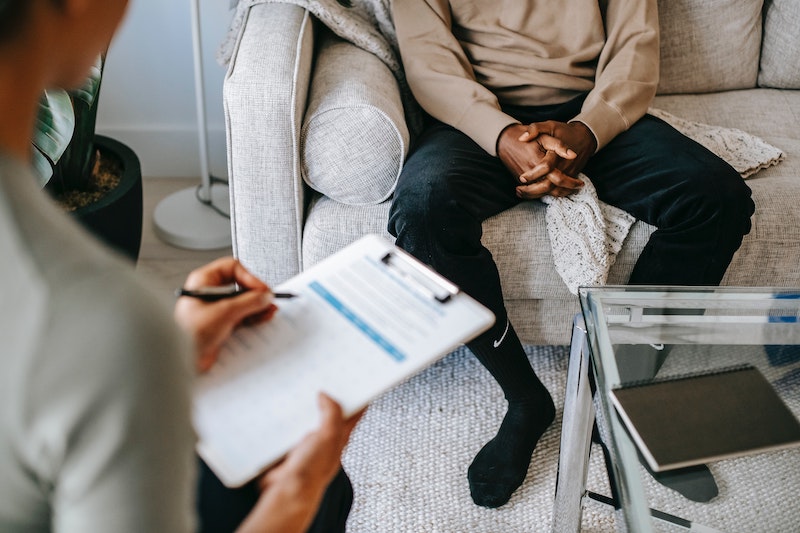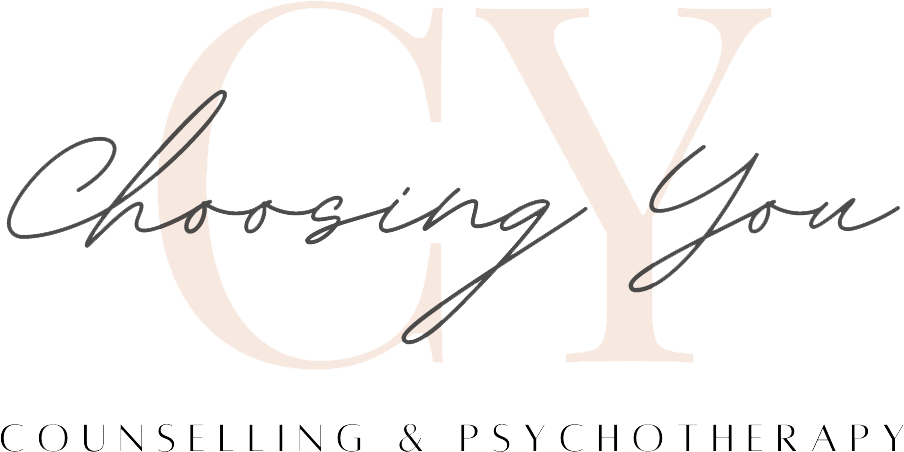After having been in your shoes, of nervously booking a first session with a therapist – to being on the other side and leading a first counselling session AS a therapist; here are 8 tips I’d like to offer you in preparation for your first counselling session. Hopefully by the end of this blog post, you will feel more at ease before heading in to your first session with a new counsellor.
You made the call…what’s next?
1. Take a moment of mindfulness
First and foremost, I’d like to say congratulations, you did it. I’m sure upon your research for selecting a new therapist, you may have noticed how often therapists mention their understanding for the bravery and courage it takes to reach out. And they’re right! I hope you can take a deep exhale and give yourself a pat on the back for taking this big leap. Meeting with a new therapist takes courage, as you will be meeting with someone completely new! You deserve to take some time (at least a moment) to celebrate that. 
2. It’s normal to feel nervous
Maybe some of these thoughts will be sounding familiar right about now: “I bet they’ll just tell me my problems aren’t a big deal”
“Will they think that I’m weak and just tell me to get over it?”
“What if I say something stupid?”
“I’ll be so embarrassed if I cry”
“They’re going to think that I’m crazy” If any of these thoughts are familiar, take a slow, deep breath… You’ve got this.
Any good therapist will have a strong value of providing a safe, non-judgmental space for every client. As I mentioned above, most counsellors think that anyone who reaches out to them is courageous. They believe you are a human, who has been doing the best that you can, with the knowledge and capabilities that you already have. Reaching out for a helping hand is a form of self-care, something every therapist might advocate for! *Quick tip: Anxiety and excitement create very similar experiences in our body (they both might create heart palpitations, the jitters, butterflies in our stomach, clammy hands). Maybe it’s not nervousness that you’re feeling, and your body is trying to tell you that it’s excited you’ve taken this step to further help yourself grow and learn!
3. Forms that you can expect to receive
Your therapist might either send you a few forms before you first meet with them, or at your first session. These forms will have general intake questions (name, address, emergency contact) and some might be longer (asking about health history, past experiences, questions about your family) or they may also send out a questionnaire. The length of these forms will vary, as each counsellor has their own methods of getting to know you better.
You will also receive the therapist’s consent form and you may also get a separate form discussing the terms and conditions of confidentiality while doing virtual therapy. Should you have any questions or concerns about the therapist’s forms, it’s highly encouraged to ask your questions. No question is a silly question here! 
4. Your first appointment
If you’ve booked an in-person appointment, your therapist will have a waiting room/someone ready to greet you at a front desk.
For virtual sessions, your therapist will send you a video session link 24h to 30 minutes before your appointment time. Each therapist uses their preferred video system, and should you need to create a login account or download any software, they will instruct you on how to do so. If your session is by phone, they’ll give you a call at the time of your session.
At your first appointment, your therapist might review the forms they gave you, and make sure confidentiality is clear. They might ask more general background questions, or start by inquiring what it is that brings you to counselling, concerns you may have, and symptoms you are experiencing. I highly encourage answering these questions honestly as this will help the therapist better understand how they can help, and feel free to ask any questions yourself.
It may take time to trust the therapist, so don’t feel rushed to open up. Do things at your own pace – just remember that openness and honesty will help both you and your therapist.
5. You’re not stuck with the first therapist you meet
If you’re not feeling comfortable with your therapist, or not sure if you even get along with them, that’s okay! I always encourage open communication, so try talking to your counsellor about your concerns. If you’re still feeling the same way, remember that we’re not meant to bond with everyone in this world, so don’t hesitate to continue searching for a new counsellor and finding one that “fits” with you!
6. Talking about your feelings can get uncomfortable
Talking about past or current experiences, feelings, or relationships can bring up discomfort, difficult emotions, or anxiety. Usually discussing these feelings with your therapist can be extremely beneficial, even liberating! But if you feel like things are going too fast and you would like to slow it down, let your counsellor know. You do not need to talk about anything that you don’t feel ready or comfortable to delve into. 
7. Give feedback
A therapist’s job is to help you. The relationship you build with your therapist is based on mutual trust and respect, therefore your opinions and thoughts on the relationship you have with your counsellor are so important! From experience, I can say that most therapists encourage and appreciate feedback. Maybe you liked an analogy they shared or you think they’ve been helpful; maybe you really didn’t like a tool they gave you, or you felt like the pace they set was going too quickly and it made you feel uncomfortable – please share!
8. Therapy takes time
Our society and lifestyles are already so fast paced. I strongly encourage you to allow therapy to be a place where you learn to let go of impatience and “quick fixes” (notice if any discomfort arises here?). There is no magic pill, wand, or button that can take all of our problems or difficulties away – but taking the time to allow change, real change to happen? That might feel like magic.
Don’t worry though, this doesn’t mean you have to go to therapy for years. But I encourage you to choose to do this work on yourself, and give yourself time to learn something new.  If you’ve found this material helpful and would like to connect with a Choosing You counsellor, send us a message by clicking the button below! Contact us now!
If you’ve found this material helpful and would like to connect with a Choosing You counsellor, send us a message by clicking the button below! Contact us now!

